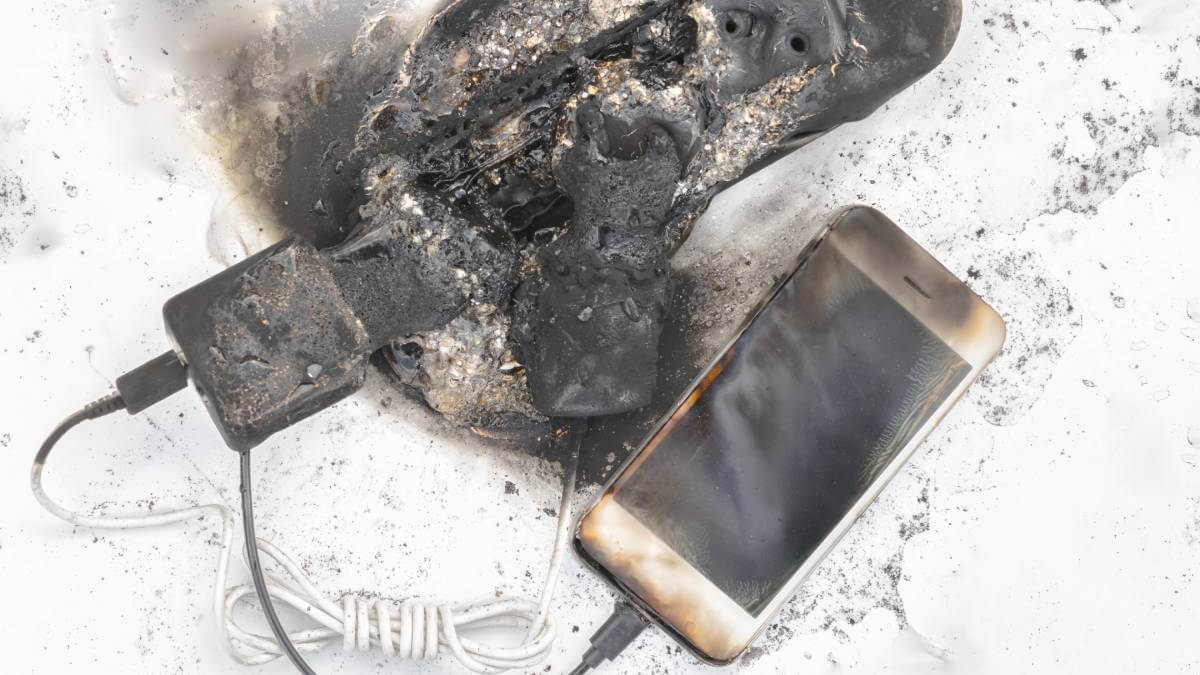It only takes “a couple of breaths” of toxic fumes from a battery-ignited fire to cause a person to become unconscious.
The use of lithium battery-powered products in New South Wales is increasing, and so too is the rise in house fires caused by them.
Last year, there were 165 lithium-related fires in the state, according to data from Fire and Rescue NSW.
There have been 114 in the first six months of this year, more than half recorded for the entire 2022.
Earlier this month, the NSW government urged people to dispose batteries safely, after a rise in garbage truck and waste facility fires.
There have been seven major incidents of trucks catching alight in the Sutherland Shire Council since 2020, after household batteries had sparked or exploded.
Environment Minister Penny Sharpe said there was the capacity to recycle 95 per cent of batteries, but that was currently only happening with 10 per cent.
“The community needs to understand that bins are not the place for batteries,” she said.
In July three people had a lucky escape from a unit fire in Wentworthville, suspected to have been caused by the battery from an electric scooter.
But sadly over the weekend a 54-year-old man died after attempting to fight a fire in a Punchbowl home, in Sydney’s south-west.
Four lithium batteries were found at the location, but the cause is still being investigated.
Andrew Shurety, from Fire and Rescue NSW, said an attempt to rescue a home and belongings in the face of such a blaze is futile, with tragic consequences.
What should you do if a lithium battery catches fire?
Evacuate.
Battery-ignited fires erupt quickly, and can escalate into a raging blaze within seconds.
“It’s an intense fire that even firefighters, with lots of water, have difficulties extinguishing,” Mr Shurety said.
“I don’t think people understand that, a portable, dry chemical powder extinguisher is not going to extinguish a fire at that level.”
Mr Shurety said if you can safely turn the power off, or plunge the small device in cold fresh water, that can defuse the problem.
“But if there’s any risk whatsoever, you need to vacate the premises.”
Firefighters won’t enter a home without a breathing apparatus.
“The risk is, if you go into a smoke environment, it only takes a couple of breaths of this toxic gas, that you can be unconscious and on the floor,” he said.
Why are they so toxic?
Fire and Rescue NSW superintendent Adam Dewberry said smoke from any kind of fire was harmful and could lead to poisoning from hydrogen, cyanide, and carbon monoxide.
“It doesn’t matter whether the fire is caused by a lithium battery or not, but that is definitely toxic,” he said.
Steve Beaman, from the NSW Environment Protection Authority (EPA), said batteries contained enough energy to ignite, even when flat.
“These batteries are actually chemical batteries, they contain lead, mercury, and lithium,” he said.
“There’s enough chemical energy when the batteries are flat, to generate enough heat to cause a fire explosion.”
How can you prevent battery fires?
Batteries that have been overcharged, misused, or modified, can malfunction.
Mr Dewberry has seen several fires after people have tried to remove a battery, and it’s been cut and ignited, or a modification that leads to one sometime later.
“My nephew was telling me how to modify an e-bike or an e-scooter just watching it on TikTok. That’s really quite concerning,” he said.
Mr Shurety also cautioned against charging batteries in a flammable location.
“Don’t charge them on your bed, they’ll produce heat and potentially catch the bed on fire,” he said.
“If you’re charging an e-scooter, charge it outside and don’t charge it overnight, when you’re sleeping.”
People should also be wary of cheap batteries, and are advised to buy reputable brands, and to always use the correct charger.
Mr Beaman said batteries that can be removed safely should be taped at the ends, or stored in a glass jar, and disposed at a e-waste collection point, or retail drop-off point.
 2020 Australian Broadcasting Corporation. All rights reserved.
2020 Australian Broadcasting Corporation. All rights reserved.
ABC Content Disclaimer

